
Transcription
HARLAN RICHARDS
April 15, 2019
Wikileaks - the Julian Assange Controversy
Until the 2016 presidential election, I was a Wikileaks supporter. I agreed with their objective of obtaining incriminating government documents and making them available to the public.
Does anyone remember Daniel Ellberg and the Pentagon Papers? Or Deep Throat, and how his revelations exposed the worst criminal we've ever had in the White House, Richard Nixon? These were patriots acting for the good of our country, and I applaud them all.
But Julian Assange crossed the line in 2016 when he took an active part in helping the Russians elect Donald Trump. Had he not posted the hacked emails of the Democratic National Committee right before the election, Trump would not have won. Had he waited until after the election, that would have been fine. But we need to send a clear message that foreign nationals who interfere in our elections must pay a price for that interference. The same way the Russians involved were indicated and will face trial if we can ever get our hands on them, Assange also needs to answer for his actions.
We need whistle blowers. We especially need someone to leak the Mueller Report on Russian interference in the 2016 election. But we don't need someone using hacked materials to swing our presidential election to their preferred candidate.
Other posts by this author
|
2021 jun 25
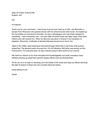
|
2021 may 25
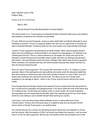
|
2021 apr 23
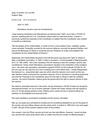
|
2021 feb 19
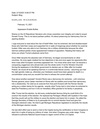
|
2021 feb 17
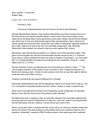
|
2021 feb 15
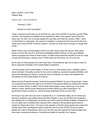
|
More... |
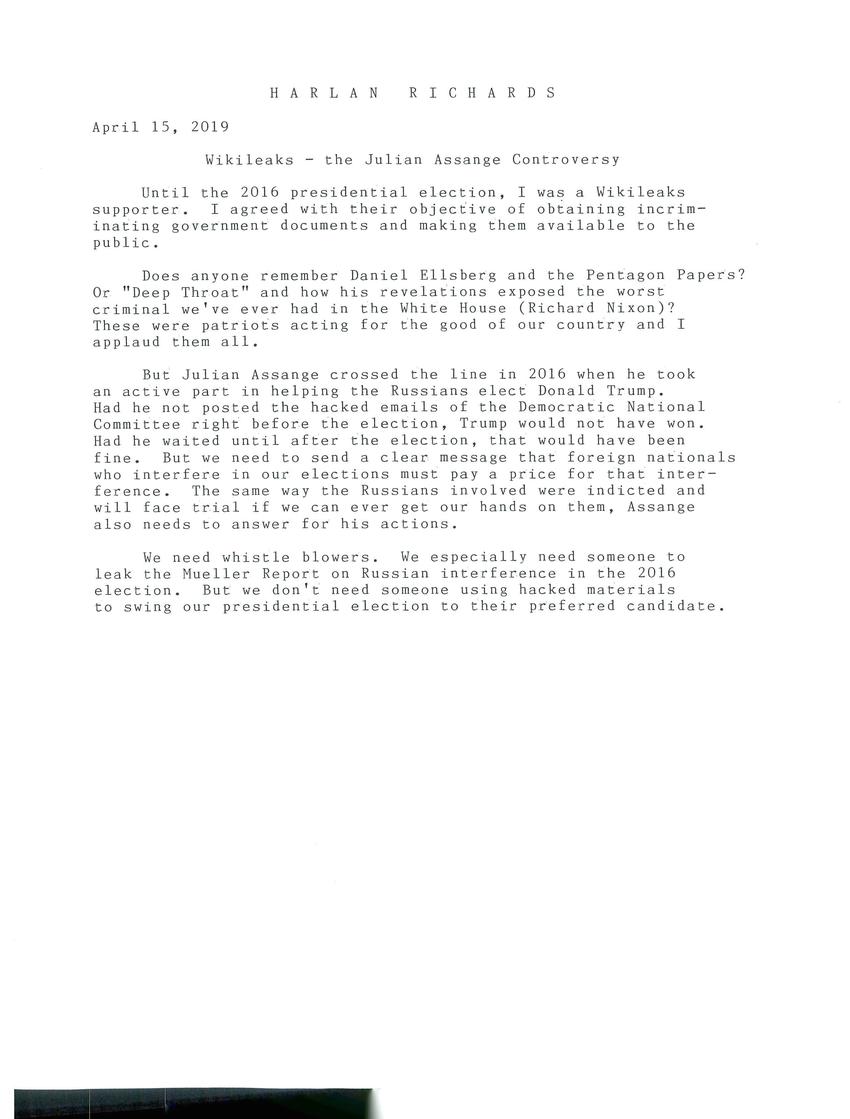

Replies (22)
just a thought on your post, you wrote that the Us don't need foreign nationals to interfere with US elections. This is a list of countries the United States were involved in regime change since cold war, not sure it is complete, wikipedia is the source:
5.1 1950s
5.1.1 1952: Egypt
5.1.2 1943–1970s: Italy
5.1.3 1949: Syria
5.1.4 1953: Iran
5.1.5 1954: Guatemala
5.1.6 1955–1960: Laos
5.1.7 Failed coup plots against Syria
5.1.8 1957–1959: Indonesia
5.1.9 1958: Lebanon
5.1.10 1959: Iraq
5.2 1960s
5.2.1 1960: Democratic Republic of Congo
5.2.2 1960: Laos
5.2.3 1961: Dominican Republic
5.2.4 1961: Bay of Pigs
5.2.5 1960s: Cuba
5.2.6 1961–1964: Brazil
5.2.7 1963: Iraq
5.2.8 1963: Vietnam
5.2.9 1965–66: Dominican Republic
5.2.10 1965–1967: Indonesia
5.2.11 1967: Greece
5.3 1970s
5.3.1 1971: Bolivia
5.3.2 1972–1975: Iraq
5.3.3 1973: Chile
5.3.4 1979–1989: Afghanistan
5.4 1980s
5.4.1 1980-1989: Poland
5.4.2 1980–1992: El Salvador
5.4.3 1982–1989: Nicaragua
5.4.4 1983: Grenada
5.4.5 1989: Panama
6 Post-Cold War
6.1 1990s
6.1.1 1991: Kuwait
6.1.2 1991: Haiti
6.1.3 1991–2003: Iraq
6.1.4 1994–2000: Iraq
6.1.5 1997: Indonesia
6.2 2000s
6.2.1 2000: Yugoslavia
6.2.2 2003: Iraq
6.2.3 2005: Iran
6.2.4 2006–07: Palestinian territories
6.2.5 Post–2005: Syria
6.3 2010s
6.3.1 2011: Libya
6.3.2 2015–present: Yemen
At the same time the United States don't accept that the International Court of Justice would make any trial against a US citizen. To give you a headline of 2018: "John Bolton’s crusade against the International Criminal Court is so hard-lined it threatens a US invasion of Holland". Which price you feel the responsible american citizens should pay for all that interference in foreign countries? Also, nobody forced the DNC to manipulate the election of Hillary Clinton. In all polls, Bernie Sanders did better against Trump than Clinton. For a big part, they were shooting in their own foot.
Warm greetings,
Julia
thanks for your reply and for appreciating my comment. And well, I still don't agree to put the Trump victory on Wikileaks and the Russians. True, it was unfortunate that those information leaked short before the election. Still, 62,984,828 Americans voted for somebody who said about women what he said about women and who bragged that "I could stand in the middle of 5th Avenue and shoot somebody and I wouldn't lose voters". My point is, maybe its good to look in the own mirror instead of pointing to the Russians as to why so many people considered voting for someone who spills so much hate.
And then Clinton did some strategic faults. Again some copy paste:
The Clinton Campaign Was Undone By Its Own Neglect And A Touch Of Arrogance, Staffers Say
In key battleground states, calls for help weren’t taken seriously enough.
11/16/2016 huffpost
WASHINGTON ― In the closing weeks of the presidential campaign, Hillary Clinton’s staff in key Midwest states sent out alarms to their headquarters in Brooklyn. They were facing a problematic shortage of paid canvassers to help turn out the vote.
For months, the Clinton campaign had banked on a wide army of volunteer organizers to help corral independents and Democratic leaners and re-energize a base not particularly enthused about the election. But they were volunteers. And as anecdotal data came back to offices in key battlegrounds, concern mounted that leadership had skimped on a critical campaign function.
“It was arrogance, arrogance that they were going to win. That this was all wrapped up,” a senior battleground state operative told The Huffington Post.
Several theories have been proffered to explain just what went wrong for the Clinton campaign in an election that virtually everyone expected the Democratic nominee to win. But lost in the discussion is a simple explanation, one that was re-emphasized to HuffPost in interviews with several high-ranking officials and state-based organizers: The Clinton campaign was harmed by its own neglect.
In Michigan alone, a senior battleground state operative told HuffPost that the state party and local officials were running at roughly one-tenth the paid canvasser capacity that Sen. John Kerry (D-Mass.) had when he ran for president in 2004. Desperate for more human capital, the state party and local officials ended up raising $300,000 themselves to pay 500 people to help canvass in the election’s closing weeks. By that point, however, they were operating in the dark. One organizer said that in a precinct in Flint, they were sent to a burned down trailer park. No one had taken it off the list of places to visit because no one had been there until the final weekend. Clinton lost the state by 12,000 votes.
The campaign’s state office argued additionally for prominent African-American surrogates to help in Milwaukee. “There are only so many times you can get folks excited about Chelsea Clinton,” explained one Wisconsin Democrat. But President Barack Obama and first lady Michelle Obama didn’t come. Nor did Hillary Clinton after the July Democratic convention. She would go on to lose the state, hampered by lower turnout in precisely the place that had operatives worried. Clinton got 289,000 votes in Milwaukee County compared to the 328,000 that Obama won in 2012.
“They had staff on the ground and lots of volunteers, but they weren’t running a massive program because they thought they were up 6-7 points,” said the aforementioned senior battleground state operative.
In politics, much like anything else, victory has a thousand fathers and defeat is an orphan. A senior official from Clinton’s campaign noted that they did have a large staff presence in Michigan and Wisconsin (200 and 180 people respectively) while also stressing that one of the reasons they didn’t do more was, in part, because of psychological games they were playing with the Trump campaign. They recognized that Michigan, for example, was a vulnerable state and felt that if they could keep Trump away ― by acting overly confident about their chances ― they would win it by a small margin and with a marginal resource allocation.
Clinton herself has blamed FBI Director James Comey for re-launching an investigation into her emails only to clear her days before the vote; while operatives across the spectrum, including former President Bill Clinton in the campaign’s closing days, argued that she failed to adequately reach working class white voters that had been drifting away from the Democratic Party.
“It is not black and white,” said Michael Tate, the former chair of the Democratic Party of Wisconsin. “I can tell you in Wisconsin that the staff they had leading the effort were top-notch field operatives. Period. Would it have helped if Hillary Clinton came in? Yes. Would it have helped if Comey didn’t push his shenanigans? Yes. Would it have helped if Trump hadn’t visited right before the election? Yes ... But I think the folks here did a good job and they just came up short in an election where we were running two historically unpopular candidates.”
“We all were blinded, and even at the end, we were blinded by our own set of biases,” said Paul Maslin, a Madison-based Democratic operative and pollster.
Which explains why, in a Midwest battleground state that the Clinton campaign’s data said would be closely contested, its ground game capacity was robust. Adrienne Hines, chair of the Democratic Party in Ottawa County, Ohio, just east of Toledo, said the Clinton campaign had a very active outreach and turnout operation. But the county, which Obama won twice, still went to Trump as his message ― however detail-free ― of bringing back jobs to the economically depressed area resonated.
“We were dealing with somebody who could say whatever he wanted. It is like being at the Olympics and somebody is on steroids and somebody is not, and then blaming the person not on steroids,” Hines said of criticism of Clinton campaign tactics.
As Democrats begin to repair their party and learn from the shortcomings of the Clinton campaign, one of the primary arguments being made is that candidates have to show up if they expect to win. Obama said as much in a recent press conference when he tied his success in Iowa to the sheer number of stops he made in the state while campaigning. And the data strongly suggests that this was a vulnerability for Clinton. As the Washington Post reported, Clinton’s campaign and outside groups supporting it aired more television ads in Omaha during the closing weeks than in Michigan and Wisconsin combined. And as NBC News reported, during the final 100 days of the election, Trump made 133 visits to Florida, Pennsylvania, Ohio, North Carolina, Michigan and Wisconsin while Clinton made 87.
On the margins as well, campaign operatives say the Clinton campaign’s failure to have a footprint did real harm. In Pennsylvania, for example, the campaign had a healthy canvassing operation and was flush with volunteers, many of whom poured in from New York City and Washington, D.C. But according to one longtime grassroots campaign operative who was involved in the 2016 cycle, leadership was focused predominantly on turning out their own voters and not on persuading others to come on board.
This was a perfectly logical strategic decision, considering the massive voter registration advantage that Democrats enjoy in the state. But it meant that the Clinton campaign wasn’t able to anticipate the surge in Trump support in the rural areas because they weren’t having conversations with voters there.
“Paid canvassers compensate for candidates who don’t have a huge volunteer base,” said the grassroots campaign operative. “Hillary Clinton had [a huge volunteer base]. It just wasn’t always in the places they needed it to be.”
End of article
I agree with you concerning the Supreme Court. That will haunt the US for a long time. And I for sure am not happy with Trump as a president. It's just that it seems to me that if Hilary Clinton does fingerpointing, she really has to do it to herself. One of the things leaked by wikileaks is that Clinton and the DNC pushed Trump as a candidate as they expected to win against him. I don't know if you know that she talked (jokingly, assumably) about dronebombing Assange. She was not forced to say such horrendous thing. Assange is mentally not healthy after all those years in isolation.
Anyways, I keep it here before I write a book, have a good day Harlan,
Julia
thank you for your response of July 22. Let me get into it.
A bit off topic, but I would welcome it if we could get rid of polls. They also led to politicians doing rather election management than having a sincere point of view.
40% of approval can easily be enough, as only a bit more than 60% voted in 2016. But I guess that's no news to you.
Well, who would be the best candidate. I really would appreciate if it will not be Joe Biden. That would be just business as usual, and that business was not good. And if you look at the amount of donations Bernie Sanders knows to accumulate, or rather the amount of people that donate to him. Right now he has 746.000 donors, next is Elizabeth Warren with 421.000 donors. Biden is fifth at 256.000.
Have you seen the democratic debates? I thought CNN did a horrible job, looking to set them up one against the other.
So what is your favorite candidate? And what about continuing this conversation the next months, I enjoy it, and nice to not have the same opinion.
Also, you live in a potentially crucial state, you know some people you can convince to do the right thing? ;)
I am also curious what you think of the climate crisis. Is it a topic that is of interest of you?
Well, have a good day, I am looking forward to your response, Julia
good to read from you.
Am I a political Junkie? I guess I am. I am not on it 24/7, but I am surely interested. Lately I enjoy listening to podcasts, some by NPR are quite good. But those of course are inaccessible without the internet.
Well, busted, yes, I am from Europe, I live in the Netherlands, grew up in Germany.
Concerning the candidates, you sound like Elizabeth Warren could become your favorite. These are the ones that qualified for the next debate: Joe Biden, Bernie Sanders, Elizabeth Warren, Kamala Harris, Pete Buttigieg, Beto O’Rourke, Cory Booker, Amy Klobuchar, Andrew Yang, and Julián Castro. But I don't think anyone but Biden, Sanders or Warren stands a chance, if nothing crazy happens.
Interesting that there are no openly MAGAinmates. Too bad you can't vote.
Have you heard of the change of law in Florida that now allows most former inmates to vote? One puzzling thing about it that the push for this was supported by the an organisation financed by the Koch brothers ("The amendment was officially supported by Floridians for a Fair Democracy, which gathered more than 1.1 million petitions to put it on the ballot. It received bipartisan endorsements from the American Civil Liberties Union and the Koch brothers–backed Freedom Partners.") - while one would expect all of this will rather profit the democrats in such a crucial state. No it seems that the Republicans want to have people pay a fee or sth - seems like the last word is not spoken on this issue.
Concerning the dollar, I guess that also might be a case of too big to fail. But on the other hand, I am afraid the financial system is not stable at all. It's not that the factors that led to the last financial crisis don't exist anymore.
That is my little rant of today,
greetings,
Julia
now I am busted again, as a Russian troll. Yes please tell me how you knew...
MAGAinmate should have been KAGinmates. My bad. KAG being Keep America Great. You mentioned that Trump does not have many support inside prisons, so there are not many KAGinmates...
At the moment I do not follow politics too much. I was horrified at what Trump did in Norther Syria, or what he facilitated by concentrating the troops just around the oil fields. No friends but the mountains, as the Kurds proverbial say.
Elizabeth Warren released her health care plan and that was the financial headline afterwards: Health-Insurance Stocks Rise as Elizabeth Warren Details Plan for Medicare for All. Same article: When Bernie Sanders introduced the Medicare for All bill in the Senate in April, the S&P 500 Managed Health Care index dropped 13.5% in a week. I guess one of the two is more a threat to the status quo.
Concerning the media reporting of Bernie Sanders, the onion had the following headline: MSNBC Poll Finds Support For Bernie Sanders Has Plummeted 2 Points Up.
It's sad one gets so fed up with some issues even though they are quite of importance, like Brexit, how long is that already going on? And now again, prolongation till January 31.
Meanwhile Beto dropped out, Harris kind of gave up New Hampshire and Buttigieg thinks it's between him and Warren.
So long,
have a good day,
Julia
Happy New Year! I hope it's a good one for you.
Let me respond to your letter... Concerning the KAG acronym, I made that up, don't know if it's a thing anywhere... I do know that the Onion is satire, and I generally don't read it, so I don't have an opinion on their quality. I quite like John Oliver.
I was just reading an interesting article on the history of the algorithm used for trollattacks and thought it might interest you, so here comes an article on it (from a German newspaper, Die Zeit):
Digital Incendiaries
Russian agitators on Twitter are fueling discord in the West. A look into their machine room reveals the tools the trolls want to use to influence the European elections.
You could easily mistake this particular Twitter user as a European Union citizen with a wide range of interests. He posts up to 60 times a day, in Dutch, German, English and Spanish. And he comments on rulings from the European Court of Human Rights as well as the Crimea crisis and the issue of Catalan. But there's still something a bit fishy about his account. He's constantly seeking to sow discord. He is sometimes belligerent, frequently twists facts and also targets Muslims and the EU while supporting Brexit and Trump. "The EU court is the new Nazi court," he recently wrote.
Even stranger than all this is the fact that, over the last four weeks, more than 800 accounts temporarily shared the same name as this single Twitter user – all very briefly. What was going on?
This game of tag jibes neatly with the strategies of Russian trolls. The supposed EU citizen appears to be a kind of virtual name tag that is simply passed along on the internet. Ultimately, though, the trail leads to St. Petersburg, to a troll factory known as the Internet Research Agency (IRA). A few years ago, a number of accounts held by the IRA were exposed and blocked – and this user was linked conspicuously closely to some of them.
Nobody knows how many trolls there are or how many people they are able to deceive on the internet. But there's no denying their existence. And the upcoming European Parliament elections, to be held later this month, are on their radar.
The Kremlin recognized that potential early on. Specialists with the Russian secret service agencies GRU and SWR even form policies on the basis of the data they capture. And then there are the trolls on platforms like Facebook and Twitter, controlled by opinion factories like the IRA in St. Petersburg. They foment conflict and fuel campaigns in Germany, Great Britain and the United States. The influence Moscow had on Donald Trump's election to the U.S. presidency in fall 2016 underscored just how successful these efforts can be.
In the grand game of geopolitics, the Russian government exploits this gray area between war and peace as an elegant way to expand its influence. But how did it all get started – and where? It is a search that must also look at the software the trolls have at their disposal. And on that search, the journey starts in a rather unexpected place.
The Perfect Curve
In the Spanish capital of Madrid, Javier Perez Dolset, a tall, soft-spoken 49-year-old, is sitting at a conference table and smiling as he recalls those two bars that could be moved up and down with a controller to hit a pixel ball back and forth. He was 6 years old, he says, when his father gave him a Pong console – and he's been obsessed with video games and programming ever since. "I was the biggest nerd in school," he says.
In 1998, when he was in his late 20s, he developed the successful video game "Commandos." Today, his empire includes the private U-tad technical university on the outskirts of Madrid, with a modern campus, complete with roads that are named after European cities, where students learn to program. His animation studio, which produces films for U.S. studios, is also located on campus. His passion for all things digital has been a constant throughout his life, even though it has also got Perez Dolset into trouble, including legal disputes and the loss of control over his most important company. It has also led to his entanglement in the digital conflict zone of troll wars.
The story begins around 2010, a time when Perez Dolset's company ZED had already been making a mint for years with mobile communications products like ring tones, music and games. But as the importance of social networks grew, Perez Dolset quickly recognized what it could mean for his clients – mobile operators who in turn had hundreds of thousands of customers of their own – if dissatisfied consumers were to join forces there to complain about products or services.
SNAP is made up of three components. Perez Dolset and Juan Carlos Gonzalvez, the program's architect, explained how SNAP works over the course of several meetings in Madrid. ZEIT and its partners were also able to view elements of the source code.
The first component is a data rake that collects as much of the current data stream on Twitter as possible. The second component analyzes the data and converts it into graphics that help show such information as: What discussions are starting to form around what hashtags? Who are the most important participants, based on how much they are writing, how many followers they have and how often their posts are shared? SNAP can visualize links that might otherwise remain hidden. Who's connected to whom, for example. Or when very different hashtags attract the interest of a surprisingly large mix of users. Depending on the question asked, points and connecting lines are arranged on the monitor and form complex webs of relationships. But without the third component, the attack tool, it would all be little more than a gimmick. Perez Dolset named that tool the Social Baton because, just as a conductor conducts an orchestra using a baton, the customer should also be able to steer Twitter accounts using SNAP. "Orchestrated campaigns through tweets and retweets," an advertising brochure promises.
Twitter is a so-called micro-blogging platform – a real-world analogy might be a crowded pedestrian zone with everyone babbling their thoughts to themselves. At times, though, some pedestrians pick up what others are saying, and suddenly you have a choir of people shouting things like, "Company X makes bad products." The choir grows into a cacophony, and the hashtag becomes a trending topic, and the whole world begins talking about the content in question.
When a hashtag goes viral in this way, the attention it generates grows in the form of a particular curve. And this is where SNAP goes on the attack: The program is designed to simulate this curve – all it needs is control over a certain number of Twitter accounts. SNAP's algorithm then calculates how to behave to create a fake attention curve that can outwit Twitter. "In this way, you can generate millions of content views out of 20 tweets," claims Perez Dolset.
Perez Dolset initially pitched the program to a telecommunications company in Panama. But a strange thing happened before he managed to land a commercial client. A man named Pedro Arriola, an adviser to Spain's conservative party Partido Popular (PP), which led the country's government at the time, also happened to be a member of the supervisory board of Perez Dolset's university. And, says Perez Dolset, Arriola recognized that SNAP could also be useful in the political arena.
The conservatives deployed SNAP in the next general election, in December 2015, and again when Spain held new elections in June 2016. Perez Dolset's developers even programmed a special app, which hundreds of activists handpicked by the party loaded onto their smartphones. To make something go viral, all party leaders had to do was to enter the desired hashtag into an interface. SNAP's algorithm would then calculate the perfect curve – and send instructions to the mobile phones of the party activists, who basically just had to push a button for SNAP to generate what seemed like a natural flood of interest.
"It was the first tool that tried to do something like that," says Juan Corro, who was the head of communications at Partido Popular at the time. "The good thing about it was ... it would maximize the impact of the network." Partido Popular paid a symbolic price of 6,000 euros to use it. The Andalusian regional chapter of the Spanish Socialist Workers' Party, the country's other major party, also had access to SNAP.
Looking back, Juan Corro of Partido Popular claims that SNAP wasn't as effective as had been hoped and the party didn't deploy it again in 2019 general election campaign. Nevertheless, it doesn't change the fact that the first targeted manipulation on a social network for the purposes of an election campaign appears to have happened in the EU. "In these elections," says Perez Dolset, "we ran a troll factory."
The Trolls of St. Petersburg
By then, though, what seems to be the largest internet manipulator of all had already been active for some time: a troll factory in St. Petersburg. The Russian media had been writing for years about the "Trolls of Olgino," named after the suburb from which they flooded the internet. The organization officially registered itself as a company in 2013 under the name Internet Research Agency.
There is no doubt the IRA is towing the government line, but is it an instrument of the Kremlin? A classified report from Germany's foreign intelligence service, the BND, and the Federal Office for the Protection of the Constitution (BfV), the country's domestic intelligence agency – which ZEIT has seen – states that the troll factory is financed "by Yevgeny Prigozhin," a confidant of Russian President Vladimir Putin. The intelligence services prepared the report for Chancellor Angela Merkel's Chancellery in 2016.
The extremely wealthy entrepreneur is occasionally called the "Kremlin chef" because his catering companies receive highly paid government contracts. Prigozhin publicly denies any connection to the trolls, and didn’t answer a number of detailed questions submitted by ZEIT. The Kremlin has also consistently denied it exerts control over the IRA. But the classified analysis from the BND and BfV explicitly names Prigozhin as one of the oligarchs who provide support for the Kremlin and "are utilized for the open and covert financing of influence activities."
In the early years, the IRA trolls' messages were in Russian, their task that of portraying the country as a bastion of stability that was standing up to the West. Their approach tended to emphasize quantity over quality and the trolls still retweeted their tweets by hand. But the IRA began to transform in early 2014 and the organization established an English-language department. The first posts from the unit were still clumsily formulated and sometimes contained errors, but they had already tightened their focus on issues highly sensitive to Americans, like gun laws and immigration.
By September 2017, when Russian meddling became public knowledge, Trump had already long since won the election. And more and more information began to emerge. Such as the fact that the cyber-offensive had been boosted by Russian women who traveled throughout the U.S. to gather information for the IRA. They took photos in states like Louisiana and Georgia to make their subsequent tweets look as convincing as possible. In January 2018, Twitter warned up to 677,000 users that they had come into contact with accounts it believed were associated with the IRA. An indictment from a U.S. District Court spoke of "information warfare."
In Madrid, Javier Perez Dolset also read the news about the IRA's activities on Twitter. "Whoa, this looks very familiar to me," he thought to himself, he says. He began to wonder if the Russians may have got their hands on SNAP.
The Russian Connection
There's a reason Perez Dolset believes his software may have fallen into IRA hands: He has been doing business in Russia since 2007. He recalls a visit to a restaurant where the hosts served wine for 60,000 euros; and a dinner where the fish was flown in by private jet from Tunisia. They were golden years – initially, at least. In 2009, his company ZED acquired a 50.1 percent stake in the Moscow communications company Temafon. With the move, Perez Dolset had entered into an opaque tangle of companies where oligarchs close to the Kremlin seem to have been among those pulling the strings. One of the companies had closed a corrupt deal in Uzbekistan. Perez Dolset claims he didn't know anything about it.
At first, he even deepened the relationship further. In 2013, his company ZED joined forces with a number of companies, including the Russian communications firm TEMA. The new company, called ZED+, was based in the Netherlands. But just as everything was supposed to really take off, the whole thing suddenly collapsed. According to Spanish police files, some of his partners had allegedly funneled money into hidden subsidiaries. Perez Dolset claims he didn't know anything about it. ZED+ fell into difficulties, and investigations were also opened into the Uzbekistan deal. ZED+'s bank, ING, the largest in the Netherlands, also got caught up in the scandal and was eventually forced to pay hundreds of millions of euros in fines for not properly vetting its customers' accounts. Perez Dolset found himself in the crosshairs too for failing to live up to his supervisory duties. There was even talk of falsified documents, a claim he denies.
But there's another interesting aspect of this story: Perez Dolset claims that his Russian partners blocked him from accessing Temafon during the dispute – a version of events that is corroborated by the Spanish files. Perez Dolset says the Russian partners were dismissive when he tried to phone them, and they failed to report on their activities to the Spaniards. From that point on, he says he had no control over what happened with the software.
So, did the Trolls of Olgino get a significant upgrade in the form of the Spanish software? ZEIT and its partners have taken a closer look at Perez Dolset's allegation. The fact that Temafon had access to the software was contractually established and ZEIT is in possession of a copy of the shareholder agreement. On page 24, it states: "ZED will ensure that all members of the ZED Group offer all new products and all new versions and updates, etc., of any existing or new product to the companies within the group." Perez Dolset adds that, "The code was on our server in Madrid, the partners had access."
It is also likely that SNAP would have been of interest to the IRA. Even if the software was less powerful than Perez Dolset and Gonzalvez claimed, it probably would have given the trolls a significant technological leap. "We always assumed the IRA software came from outside of Russia," says Clint Watts, senior fellow at the Foreign Policy Research Institute and a former FBI investigator. "Around that time, the IRA was significantly expanding their capacities, and it would make sense to look for more advanced."
Watts, who provided expert testimony in March 2017 before the U.S. Senate about Russian interference, also says that when he analyzed the behavior of IRA Twitter accounts together with colleagues, they realized that even though they were run by real persons, they behaved almost as coordinated as bots (which Twitter frequently discovers and deletes). According to Perez Dolset and Gonzalvez, the programmers behind SNAP, this pattern of behaviour is what SNAP’s algorithm would direct the accounts to do. Clint Watts says: "It does seem very consistent."
How, though, did the connection between Temafon and the IRA come to pass? This is the point where a critical meeting comes into play that Perez Dolset claims took place on Dec. 16, 2013: a working meal at a posh Moscow restaurant at which, according to Perez Dolset, Yevgeny Prigozhin, the Kremlin "chef," was also present. Perez Dolset says he presented SNAP during this meeting – in Prigozhin's presence.
In response to a request for comment from ZEIT, Prigozhin's company responded as one might expect from a troll: Of course, he founded the Irish Republican Army (which shares the abbreviation IRA). And he lived for years on a Thai island together with Perez Dolset – and the ZEIT reporter also ought to seek psychiatric care.
From the U.S. to Europe?
Today, the IRA has long since moved on. And although we may have little knowledge of the Russian trolls' software of choice, it is obvious that they continue to learn and evolve. The times when you could recognize trolls by the fact that they stopped tweeting during lunchtime in St. Petersburg have passed. And as a result of the U.S. investigations, the world now knows what it looks like when the IRA deploys all its fire power for months on end. Although it will never be possible to determine with certainty whether the IRA helped to sway the U.S. election, we do know with certainty that it promoted divisions within the country.
But what have the IRA accounts been doing in the time since then?
To find out, ZEIT has examined the activities of as many IRA-controlled Twitter accounts as possible. In October 2018, Twitter released around 9 million Russian troll tweets from 3,841 accounts that Twitter believes were controlled by the IRA.
Our analysis shows that Germany and Europe are also targets. Of those messages, Twitter identified around 100,000 tweets that were in German. The largest number, just under 15,000, were published by the troll army in September 2017, the same month as Germany's last general election. Surely no coincidence.
The most common topics are revealed by the hashtags used by the trolls: #Merkel (2,243 times), #Erdogan (1,185), #refugees ("#Flüchtlinge" in the German original; 1,182) and #stopTerror ("#stopptTerror"; 971). The hashtag #AfD, standing for Germany's right-wing populist Alternative for Germany party, is also among the Top 10 (627). Interestingly, the tweets from fall 2017 aren't exclusively directed against the government: The hashtag #merkelmuststay ("#Merkelmussbleiben) also was used 508 times.
It's not possible to determine how many people read these tweets or were influenced by them. By German standards, though, these are relevant orders of magnitude.
The most successful German tweet in our sample, with around 1,000 likes and retweets, provides a good example because it brings together two issues that tend to be quite controversial: cars and Muslims. The tweet went out on July 28, 2017, the same day an asylum-seeker in Hamburg's Barmbek neighborhood stabbed a customer in a supermarket. The tweet read: "#Diesel cars are #banned to protect the population. But the borders are kept open for Islamic threats. #Barmbek."
Is there anything that can be done to counter these attempts at influence? A degree of defeatism seems to be gaining traction in expert circles. The very existence of trolls is accepted by many as irreversible.
Even prosecutors and investigators seem helpless. U.S. prosecutors are seeking to prosecute 14 people from Russia, including Prigozhin, but the chances are essentially zero that they will ever succeed in getting hold of them.
There's a similar situation in the Netherlands, where prosecutors are reportedly mulling whether to extend their investigation into the case of the MH17 passenger flight, which is believed to have been shot down by a Russian missile system in 2014, to include the IRA. Of the 298 casualties, 190 were Dutch citizens, and Russian trolls launched an extremely effective disinformation campaign aimed at muddling the origins of the strike that brought down the jet. It's unclear if there will ever be any charges.
Garvan Walshe, head of election analysis at the London Institute for Strategic Dialogue, says, "We can no longer view social media as a mirror of society." Twitter, for example, is by no means an authentic reflection of what the populace is thinking, he says. The opposite tends to be true.
And that can also be seen as evidence for the effectiveness of the propaganda distributed by the trolls. Social media platforms were once regarded as places of lively exchange, where everyone could participate in the major debates of the day. Do we now have to bury that hope?
Javier Perez Dolset, of all people, claims that his latest project is the development of software that can detect attempts to exert influence.